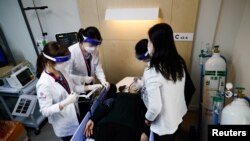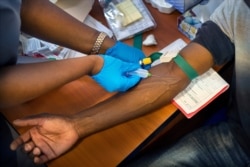South Korea has approved the COVID-19 vaccine developed by AstraZeneca and Oxford University for all adults, despite concerns over the lack of data on its effectiveness among the elderly.
The Ministry of Food and Drug Safety granted emergency use for the two-dose vaccine Wednesday, but only on the condition that the British-Swedish drugmaker provide the results of its current late-stage clinical trials on adults 18 years of age and older. The ministry has also issued a precautionary warning about inoculating South Koreans older than 65 years of age.
Inoculations of the AstraZeneca vaccine, the first to be approved for use in South Korea, will begin on February 26.
Limits on use of AstraZeneca vaccine
Several European countries, including Germany and France, have limited use of the AstraZeneca vaccine to people between 18 and 64 years old because of insufficient data on elderly recipients.
Further doubts about the AstraZeneca vaccine arose Sunday when South Africa suspended its vaccination campaign after a new study revealed that the vaccine was less effective against a variant of the virus found in the country.
The study, conducted by the University of the Witwatersrand in Johannesburg and not yet peer reviewed, concluded that the British vaccine offered only "limited protection against moderate forms of the disease caused by the South African variant, in young adults."
South African Health Minister Zweli Mkhize announced Wednesday that it will begin inoculating its front-line health care workers with U.S.-based pharmaceutical giant Johnson & Johnson’s one-dose vaccine as part of a limited study. The Johnson & Johnson vaccine has not been formally approved for use by any country, but the company says results of a late-stage clinical trial shows it is 85% effective in preventing serious illness, even against the South African variant.
Therapeutic drug approved
Meanwhile, the U.S. Food and Drug Administration has granted emergency use for a new COVID-19 therapeutic drug developed by pharmaceutical company Eli Lilly.
The drug, which combines the monoclonal antibody drug etesevimab with the already-approved bamlanivimab, will be used for coronavirus patients who are at high risk of being hospitalized with a severe form of the disease.
Monoclonal antibodies are lab-engineered versions of highly targeted human antibodies chosen for their specific ability to neutralize viruses.






